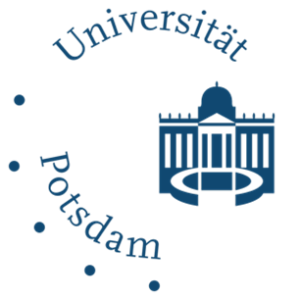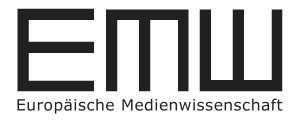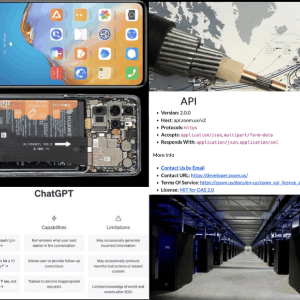
18 June 24
Location
ZeM – Brandenburg Centre for Media Studies
Hermann-Elflein-Str. 18
D-14467 Potsdam
Lecture series “The Interface Complex” with Dr. Timo Kaerlein: “Handhelds und Landhelds – Smartphones im Interfacekomplex“
Lecture in German.
The “promise of mobile freedom” (Weber 2008) materialized in smartphones and wearables is socio-technically guaranteed by a literally global material infrastructure, which includes undersea cables, transmission masts and data centers of Internet companies (Farman 2015). Mobile ‘end devices’ (the industry term) thus represent only the visible and tactile end of this expansive interface complex, but are also of particular interest to media studies due to their physical proximity, mobility, sensor technology and intimate digital practices. The lecture situates smartphones and wearables, digital near-body technologies (Kaerlein 2018), against the background of their infrastructural conditions of possibility and asks about the role of interfaces for the affordances of mobile media use.
Literature:
Farman, Jason (2015): The materiality of locative media. On the invisible infrastructure of mobile networks. In: Andrew Herman, Jan Hadlaw und Thom Swiss (Hg.): Theories of the Mobile Internet. Materialities and Imaginaries. New York: Routledge, S. 45–59.
Kaerlein, Timo (2018): Smartphones als digitale Nahkörpertechnologien. Zur Kybernetisierung des Alltags. Bielefeld: transcript.
Weber, Heike (2008): Das Versprechen mobiler Freiheit. Zur Kultur- und Technikgeschichte von Kofferradio, Walkman und Handy. Bielefeld: transcript.
Timo Kaerlein is an academic advisor at the Institute for Media Studies at Ruhr University Bochum. His research focuses on digital near-body technologies, theory, aesthetics and critique of interfaces, media cultures of obsolescence and social robotics.
The concept of the “interface” was originally developed in physics in the late 19th century – to explain the conduction of energy. From the end of the 1950s, the term interface became widely used in computer technology to describe the regulated relationship between people and computers. To this day, the term “interface” is often used to describe human-computer relationships that we encounter every day, for example in the form of graphical user interfaces. However, the term interface encompasses much more. Interfaces do not only mediate between computers and humans: Rather, interfaces establish connections on all present and hidden levels in, between and to computers, which are necessary today for the functioning of digital technology in its diverse forms, embeddings and networking. Interfaces perform mediations for and as computer work: from hardware-hardware interfaces for the cables of the Internet to APIs (Application Programming Interfaces) to sensors of self-driving cars or “smart” cities and all those software/hardware constellations for humans to provide input. The term interface addresses these diverse forms of correlations—and helps to question the complexity of the digital present precisely because these forms and process of interfaces are increasingly intertwined. They belong and work together, are interdependent and thus form an interface complex.
Current research on interfaces has increased in the international field of media studies, particularly in the last ten years, and is correspondingly many-faceted. With the lecture series “The Interface Complex”, researchers have been invited to the ZeM to provide insights into this complex and put it up for discussion. Scheduled are:
14.05.2024 Dr. Esther Weltevrede (University of Amsterdam): App Studies and Interfaces
21.05.2024 Dr. Michael Dieter (University of Warwick): Interface critique at large
28.05.2024 Joana Moll (Academy of Media Arts Cologne): The Interface Deconstructed & Revisited
04.06.2024 Prof. Dr. Kim Albrecht (Film University Babelsberg KONRAD WOLF): APIs als Medium
18.06.2024 Dr. Timo Kaerlein (Ruhr University Bochum): Handhelds und Landhelds – Smartphones im Interfacekomplex
02.07.2024 Dr. Theresa Züger (Alexander von Humboldt Institut für Internet und Gesellschaft [HIIG]): Interfaces of AI in the public interest
Organisation: Prof. Dr. Jan Distelmeyer (University of Applied Sciences Potsdam/Universy of Potsdam)
The lecture series “The Interface Complex” is directly linked to the ZeM’s annual focus “Control of Loss”: Because the presence of digital technology, which promises and enables control for us as users, is at the same time linked to the loss (or increasing difficulty) of insight and overview. On the one hand, digital technology is permanently close and familiar to me, such as my smartphone as an everyday companion and organizer of many areas of my life; on the other hand, its functionality, its own activity beyond my direct use and the ongoing exchange of data are alien to me. In view of the (promised) omnipresence and permanent availability of internet and cloud-based services, the infrastructures that (are supposed to) guarantee this, such as sealed-off server parks, camouflaged transmission masts and undersea internet cables, are comparatively invisible. The net is both present and hidden. My trust in the algorithmic processes of various services and apps, which I demonstrate through my use, is opposed to my limited knowledge of these processes. While it is clear to me what I get from digital services, it is unclear to me what these services get from me. The further development of “artificial intelligence” and the targeted productivity of a so-called “black box” make this special control-loss relationship clear: the more powerful digital methods and services that we actively have at our disposal become, the more explicit the loss of insight seems to become, which, according to a significant part of the discourse, must be accepted. “Interface” can be a helpful concept for analytically confronting this (dialectical) complexity—the simultaneity of presence and concealment, of knowing and not-knowing, of control and loss of control.
An event as part of the ZeM’s annual focus “Control of Loss”.










